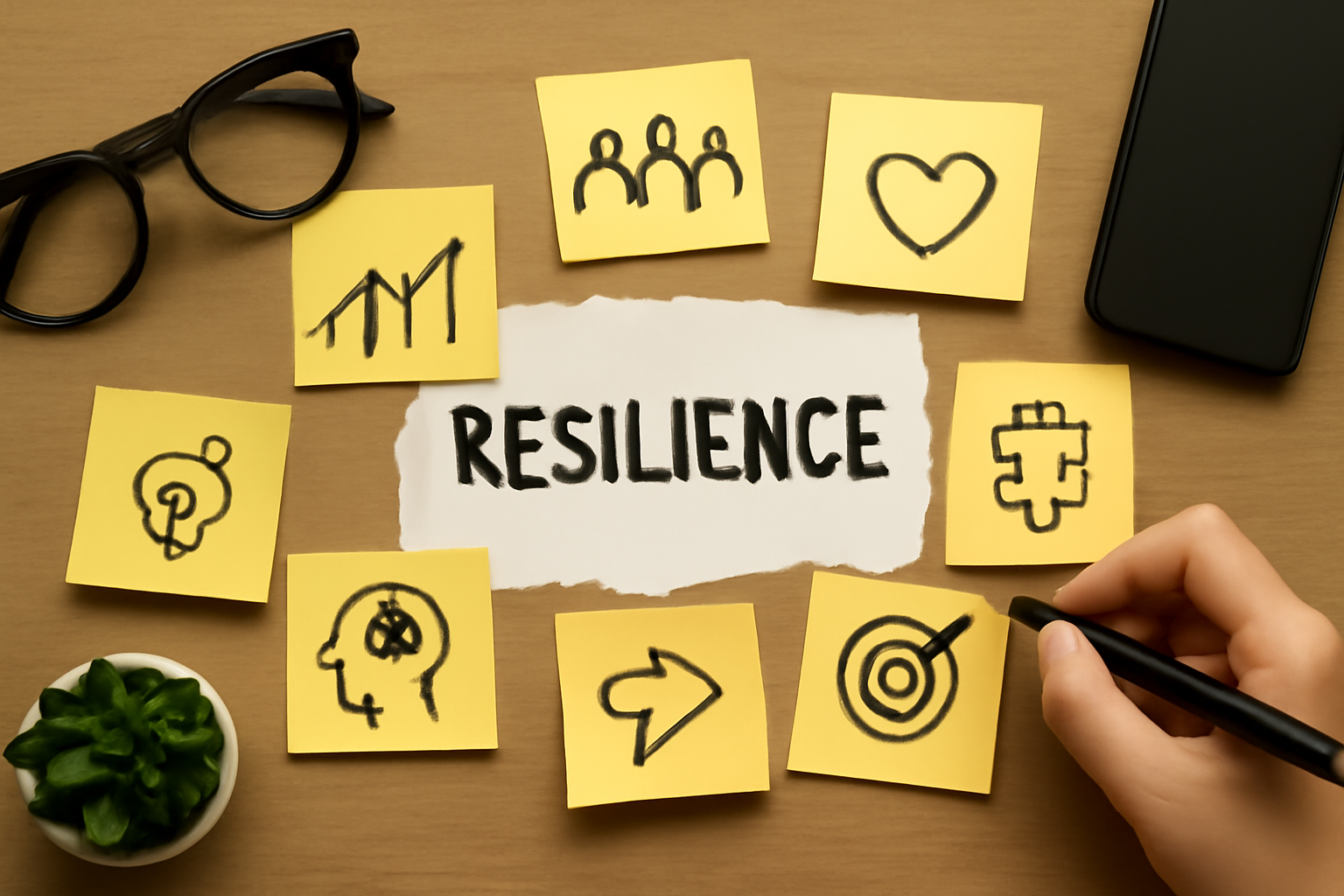Life is full of challenges, and it’s inevitable that we will face difficult and trying times. Whether it’s a personal loss, financial struggles, or career setbacks, the ability to bounce back from adversity is what sets resilient people apart. Resilience is the ability to stay strong, focused, and hopeful during times of hardship, and it plays a crucial role in overcoming obstacles and achieving long-term success.
In this article, we’ll explore strategies to help you cultivate resilience and thrive in the face of adversity.
Why Resilience Matters
Resilience is important because it:
- Helps you recover from setbacks: Resilient people can quickly recover from failures and use setbacks as learning experiences.
- Boosts mental health: Developing resilience reduces the risk of depression, anxiety, and other mental health challenges during tough times.
- Increases confidence: When you overcome challenges, your belief in your ability to handle difficulties grows.
- Improves problem-solving skills: Resilient individuals develop better problem-solving abilities, allowing them to find solutions in challenging situations.
By cultivating resilience, you equip yourself with the tools to cope with stress, navigate challenges, and continue moving forward, no matter what life throws your way.
Strategies for Cultivating Resilience
1. Develop a Positive Mindset
A positive mindset is one of the most powerful tools for resilience. While it’s natural to feel discouraged or upset in difficult times, focusing on the positive aspects of the situation can help you stay motivated and hopeful.
How to do it:
- Practice gratitude by focusing on the positive aspects of your life, even during tough times.
- Challenge negative thoughts by asking yourself, “What can I learn from this?” or “How can I turn this into an opportunity?”
- Use positive affirmations to reinforce your belief in your ability to overcome challenges.
A positive mindset allows you to approach challenges with optimism and the belief that things can improve.
2. Build Strong Social Connections
Having a strong support system is essential for building resilience. Surrounding yourself with people who care about you and offer emotional support helps you cope with stress and feel more secure during tough times.
How to do it:
- Cultivate relationships with people who lift you up and offer support when you need it.
- Be open about your struggles and allow others to help you.
- Join a community, support group, or social club to expand your network and connect with like-minded people.
Strong social connections provide emotional comfort and practical help during difficult times.
3. Practice Self-Care
Taking care of your physical, emotional, and mental health is essential for building resilience. When you’re well-rested, nourished, and feeling good about yourself, you’re better able to cope with life’s challenges.
How to do it:
- Make time for physical activity to reduce stress and boost your mood.
- Prioritize sleep to ensure you’re getting enough rest to recharge your body and mind.
- Practice mindfulness, meditation, or deep breathing to manage stress and maintain emotional balance.
Self-care helps you maintain your energy and well-being, making it easier to bounce back from adversity.
4. Set Realistic Goals
Setting achievable goals gives you something to work toward and helps you stay focused during tough times. When you’re working toward a goal, you have a sense of purpose that can help you overcome obstacles and stay motivated.
How to do it:
- Break your larger goals into smaller, more manageable tasks.
- Set deadlines and track your progress regularly.
- Celebrate small victories to maintain momentum and stay motivated.
Realistic goals provide structure and direction, helping you stay resilient in the face of challenges.
5. Learn to Adapt
Adapting to change is a crucial part of building resilience. Life is unpredictable, and sometimes, you need to be flexible in your approach to challenges. Being open to new ideas and willing to adjust your plans allows you to thrive despite adversity.
How to do it:
- Be open to new solutions and perspectives when things don’t go as planned.
- View change as an opportunity to learn and grow rather than something to fear.
- Stay flexible and embrace uncertainty as part of the process.
Adaptability helps you remain resilient and capable of handling unexpected events.
6. Develop Problem-Solving Skills
Resilient people are good problem-solvers who can think critically and creatively in difficult situations. By developing your problem-solving skills, you’ll be able to approach challenges with confidence and find solutions more effectively.
How to do it:
- Break down problems into smaller, manageable parts and focus on finding one solution at a time.
- Consider all possible solutions before making a decision.
- Don’t be afraid to ask for help or consult others who may have experience or expertise.
Developing strong problem-solving skills allows you to overcome obstacles and find solutions, even in difficult times.
7. Embrace Failure as a Learning Opportunity
Failure is an inevitable part of life, but resilient people don’t let failure defeat them. Instead, they view failure as an opportunity to learn and grow. Embracing failure as a learning experience helps you build resilience and move forward with greater wisdom.
How to do it:
- When you experience failure, reflect on what went wrong and what you can do differently next time.
- Focus on the lessons learned rather than dwelling on the disappointment.
- Use failure as motivation to try again with a fresh perspective.
Embracing failure helps you develop resilience by teaching you how to bounce back and try again.
Conclusion: Resilience is a Skill That Can Be Developed
Building resilience is an ongoing process that requires practice, self-awareness, and perseverance. By developing a positive mindset, building strong relationships, practicing self-care, and embracing failure as a learning opportunity, you can cultivate resilience and thrive even during tough times.
Remember, resilience is not about avoiding adversity—it’s about developing the strength and flexibility to overcome it. With time and dedication, you can become more resilient and better equipped to face life’s challenges.
